 “Sanctuary“
“Sanctuary“
By Gary Lee Stuber
 incere had a fitful night. His emotions flowing up and down like a raging river. On one hand he was excited about reading; learning for himself what secrets were hidden in the scrolls and books in the library he was working in. And, the possibility that somewhere among those secrets was the one he needed the most: how to earn salvation from his present state of damnation to hell. Contrarywise, if ordained as a priest, he would be forced to practice those things that he felt had continued to plague the members of his own class. He didn’t know if he could do that. He fought that persecution all his life. But one thing he knew for sure: Sebastian would have the determination to make all of this happen, with or without his cooperation. He rose early, since he wasn’t getting much sleep anyway, and went down to the library, unlocking the door with its only key. It had been his first night away from it and in his own bed. Sebastian had insisted. He moved inside, bringing the fire with him, that he would need to illuminate the mostly darkened enclosure. He was completely stunned when Sebastian showed up early, barely before he had the room well lit. But more so for what he saw in Sebastian’s attitude. Was that happiness?
incere had a fitful night. His emotions flowing up and down like a raging river. On one hand he was excited about reading; learning for himself what secrets were hidden in the scrolls and books in the library he was working in. And, the possibility that somewhere among those secrets was the one he needed the most: how to earn salvation from his present state of damnation to hell. Contrarywise, if ordained as a priest, he would be forced to practice those things that he felt had continued to plague the members of his own class. He didn’t know if he could do that. He fought that persecution all his life. But one thing he knew for sure: Sebastian would have the determination to make all of this happen, with or without his cooperation. He rose early, since he wasn’t getting much sleep anyway, and went down to the library, unlocking the door with its only key. It had been his first night away from it and in his own bed. Sebastian had insisted. He moved inside, bringing the fire with him, that he would need to illuminate the mostly darkened enclosure. He was completely stunned when Sebastian showed up early, barely before he had the room well lit. But more so for what he saw in Sebastian’s attitude. Was that happiness?
He had seen Sebastian happy on occasions, but NEVER when he was tutoring clerics or fellow priests. Then he was always sober, even bitter sometimes when his frustration was showing. But this Sebastian, he was unsure he had ever seen. Sebastian walked right up to him and threw his massive arms around him, giving him a tight squeeze before jumping back. “Today,” he said loudly, with a broad smile, “We begin a new relationship with God.” He held in one hand a priests cloth and mantle. It drew Sincere’s attention even as he spoke.
____”Relationship?” Sincere asked, somewhat puzzled.
____”I know the answer to your question — how a sinner earns salvation.”
____”Tell me quickly.”
____”You cannot earn it.” Sebastian said with a smile.
____”I am damned then.” Sincere shrugged, helplessly.
____”No. No, you are not.” Sebastian said, giggling like a child. “Salvation is NOT something you earn. Nor can you bribe God to get it with ransoms or good deeds no indulgences. It is something you are given – it is a gift of God.”
____”And you have this gift?”
____”Yes!” Sebastian shouted, and tears punctuated his joy. This only served to confuse the young student. “And you can have it too. It’s free – it truly is a gift…”
____”How do I get this gift?”
____”Well, it starts with remorse. It starts with a contrite heart. You must feel such sorrow and regret for your sins that you beg God to forgive you for them.”
____”Sebastian, this I have done a number of times,” Sincere said, “If I had the power to undo the things I have – I would. If I could but bring back to life just one of the people who died because of me I would give my life in his place.”
____”Good. Good.” Sebastian said eagerly, “Christ said, confess your sins and they shall be forgiven you.”
____”Theft?”
____”Yes.”
____”Murder?”
____”Yes.”
____”Why? How?”
____”Because someone a long time ago prayed that you would remember your sin and your guilt, and in your sorrow, you would ask God to forgive it. So God told that someone that if He would pay for your sins right there and then that He would not hold yours against you if you asked for forgiveness in His name. He agreed and He paid for those sins the very next afternoon.”
____”How much did he pay?”
____”Everything a man could possibly pay – all of his tears and all of his blood.”
____”And because of this man,” Sincere began, a sudden rush of tears to his own eyes, “all I have to do is ask God to forgive my sins and I won’t be damned to hell for all eternity.”
____”You will be,” Sebastian said, his voice trembling with joy, “a beloved brother of Christ, welcomed into Heaven!”
____”Forgiven? Welcome?”
____Sebastian, too overcome to speak, only nodded.
Sincere was overcome with a a weakness in his stomach. He didn’t think he could hold himself up and he dropped to his knees. Feeling a little faint, he dropped forward on his hands, trying to hold up a nearly numb body. Then, as if in pain, he began to sob great tears. He began to cry out between the sobs and the labored breathing, “Great God of the universe forgive me of my sins – my most innermost secret sins too. I stole from my parents, I think something I did caused my father’s death. I never knew – I never went back. I held hatred and contempt for all those who knew me and felt envy for those who had power over me. My selfish, arrogant, prideful acts landed me here and caused the deaths of so many men and women and orphaned so many children. Please God forgive me of these awful sins in the name of the one who paid for them, who prayed for me, even though I did not know his name…” After a moment or two of sobbing, Sincere composed himself, rising on one knee to ask:
____”What was the name of the man who took away my sins?”
____”His name is Jesus, the Christ, the only begotten Son of God,” Sebastian sobbed now, as well, “And we will both come to know him well.”
True to his word, Sebastian began to teach the young charge how to read, teaching him daily from scripture which they discussed with a new found enthusiasm. Sincere began to think back to those days when he looked out over the balcony and questioned the existence of God. And somewhere deep in his soul he was still looking for confirmation. He was seeking some miracle that would happen that could suddenly make him believe beyond question; beyond doubt. He was growing however in faith and knowledge. He discovered that he absorbed reading and writing easily. That somehow it was linked with his lifetime skill of being able to see or hear and remember and then recall anything he heard. Suddenly, with his memory he could put sounds to the the marks and scribbles on the parchments and scrolls. And he could link sounds to make words, and remember those words with ease. Sebastian found him an excellent student and his rapid growth was remarkable. He even had a skill that Sebastian had not. He could read, then remember and quote whole passages of scripture; even whole books. Sebastian began to teach him the trade too, the doctrine, rituals and practices of the church. Sebastian without the authority of the church, nor even seeking confirmation, bestowed upon the young Sincere, the title of Priest, and insisted that he dress in the robe of the church and wear on his shoulders the mantle of priesthood. His first day at morning prayers he stunned all the other clergy, but none of them dared to raise an objection. Eventually, each accepted him as one of their own.
Sincere had noticed a change in his mentor as well. Sebastian began to lose girth, spending more time and energy working with the poor than setting at the table. He spent inordinate amounts of time teaching clerics and priests from the books of Romans, Ephesians and Hebrews and lectured incessantly. He watched as Sebastian began sharing the message of hope and salvation to the poor and ill while dispensing food and medicine. He counseled the weak and those without hope and all of this without demanding a reward or the indulgence – the typical bribe for his services. This did not go unnoticed by the other priests in the abbey. But attitude and circumstance within the abbey had grown so positive, the joyous change was welcomed by most of the clergy and if there was talk of “heresy” or “blasphemy” was only in random whispers within the walls.
Between his prayers, duties and studies of scripture in four languages: Latin, Greek, Hebrew and Aramaic, Sincere spent week after week meticulously copying and checking marks from the tablets onto a single leather scroll. He found not only the energy, but a newfound interest in not only doing God’s work, but doing ALL work in the name of Christ. When asked, he even found time to clean livestock pens and carry water, he did so with a Psalm, or a grateful prayer on his lips. If he were ever looking for a miracle for confirmation that should have been it.
Often he would rise in the middle of the night, paranoid that he had gotten a mark or two in error on the leather scroll from the original tablets and go down to the library and check and tirelessly recheck his work, which was always without error. Sebastian too, proof read all the work and could hardly believe that it was proceeding without any human error at all, almost as if God had a divine finger upon the work itself. Two years passed, and the work proceeded.
____”What do you think this is?” Sincere asked one day as Sebasting was perusing his work.
____”Well, it’s not Hebrew, but does share some characters.”
____”No, Sebastian, I don’t mean the language. I mean, what do you think these tablets are?”
____”I think they constitute a single piece of work.”
____”Exactly,” Sincere said, realizing his mentor was on the same thought track, “And written by the same author.”
____”What makes you say that?”
____”This character,” Sincere said, “from the first to the last tablet was made by the same person. Note, no matter where it is, it is made with the same pressure, the same depth. The same slight push to the left that makes the clay rise here. The penmanship is perfect. A perfect man with perfect penmanship.”
____”Or a perfect God.” They both laughed. Neither of them at that point was willing to concede that God wrote this himself. But they did agree it was done by a single author. Sebastian asked, “Anything else?”
____”Well, after carefully studying the lines of text, it doesn’t seem to be arranged like a story or narrative. It seems to be arranged like some kind of..”
____”List.” Sebastian finished for him. “I thought the same thing myself, But a list of what? Men? Generations? Places? What Places? The Bible does speak often of other books: like the Book of Remembrance, or the Book of Wars, if these were they, I would hardly think they would be written out in list form. But I don’t think so, I think these are older from where they were found.”
____”Are you ready to tell me, yet.”
____”No. I am sworn to secrecy.”
____”There does seem to be some kind of order in their arrangement.”
____”What does this mean?”
____”I don’t know, I wish I did, but I have been working on something else.”
____”What?”
____”Pronunciation. I mean, you noted that it looked much like Hebrew. Maybe it is Hebrew. Just older. Maybe a more complex Hebrew than what emerged later. I gave Hebrew sounds to characters that looked like Hebrew characters and experimented giving new sounds to new characters that looked similar to what might become Hebrew characters.”
____”Why would you do this?”
____”I mean if I pronounce this in my slurred version of Hebrew I get: ‘koraff-fravdah-tah-moyhev.’ Nonsense. But listen, I mean really listen as I slur it again. Listen to the sounds, not the words. what does it seem to say to you?”
Sebastian struggled. It kept sounding like the gibberish it was, and then, suddenly he seamed to hear it.
____”The great proud one.” Sebastian said, “Yes I heard it. But what does it mean?”
____”I’m not sure. There are other lines just like it.”
Sincere began to read random lines from the tablet, but clarifying them for Sebastian in to what he thought they sounded like without the slur in Hebrew. Here is ‘Chief of the mountains‘. And another, ‘green tree in spring‘, and ‘lovely white peace‘ and even ‘flower from the sand‘… and…”
Suddenly, right in the middle of his reading, Sebastian’s white dove, leaped from the shoulder of his master and onto the forearm of Sincere who was still reading lines.
____”White One?” A stunned Sincere stroked him.
____”I don’t know,” Sebastian shrugged, “Maybe she’s beginning to like you. This has never happened before.”
____”Do you like my words? Do you like my voice?” Sincere continued to stroke the dove that made no effort to move on. “Or do you just like the language? Maybe it makes more sense to you than it does to me.” He laughed.
____”It doesn’t make ANY sense. But you may have struck on something. If the list is nothing more than thousands of nonsensical phrases then how practical or how sacred could this list be?”
____”Maybe if I knew where it was found.” Sincere tested.
____”No.”
____”Well, maybe I have to see the bigger picture. If I memorize the whole document, I can see how they relate to each other. Do you think these could be names? I mean we know they are not geneologies, since they don’t repeat a father to son in the way the Hebrews do, line to line. But maybe they are place names? Places precious to God.”
____”Flower from the sand?” Sebastian said. Then they both broke out in a laugh. They couldn’t help it, considering a place with such a name. Sebastian got serious for a moment. “You know the work is almost completed. A couple more weeks and we will have to return the tablets to Graysant.”
____”Do you think we should suggest our verbal translation?”
____”Not until, or unless it begins to make more sense,” Sebastian retorted. “There is already talk within these walls that I am crazy. I don’t need your theory to confirm it.”
The days passed, and the work was completed. An armed division of church soldiers, sent by the Vatican left the abbey with the crate on its way to Rome. The scroll, however, it’s existence unknown to Rome, remained with Sebastian until the secret group who commissioned it, would return to claim it.
____”Has it ever crossed your mind that after all these years, especially with my service to the community, that if I did slip out that no one would have the time or interest in hunting me down? That in effect I could just slip out and disappear some night?”
____”Yes, I thought about that and have often wondered why you didn’t.”
____”Maybe I was waiting on the scroll. Until it was completed.”
____”So you could steal it?” Sebastian laughed.
____”Yes, so I can steal it.”
____”Sincere. You cannot steal that which you already own. I know you have memorized the scroll. In fact, you have memorized every scroll here. You know all the scriptures by heart. You could, given the time, write back ever written work in this building. Without error, I might add. The scroll is not what keeps you here.”
____”I had to watch out for you, old man. I mean, there are rumors in this abby that you are crazy.” He grinned.
____”I would be flattered if that were true. But what kept you here was Christ. He beckons you, he calls you to his service and you hear the call. Why is it that you resist?”
____”A red sea. A burning bush. A whale come to swallow me.”
____”What?”
____”I once imagined that God was sitting back laughing, pleased that I was parcelling out stolen goods. That was my imagination. If there was laughter it was from the Lord of Chaos – whom I had served in my youth. I guess I just want to know there are real miracles and that they can change lives.”
____”Is not your own story not such a miracle. The children you helped raise, whose parents your ignorance helped to kill – do not these young people now love you and show you the respect they would any other priest? A young thief, and murderer, like the one that hung on the cross beside Christ – did he not redeem you like him? He spared your life, made it useful to Him, and to others – and has provided for you an eternity in Heaven.”
____”I know, and I am grateful, and sometimes I am so convinced he has a great plan for my life. But every now and then, I wonder, where is God, when will he deliver those around me from the persecutors. I wonder why he does not act. I wander what he waits for.”
____”Perhaps,” Sebastian said, “He waits for you.”
Sincere laughed, but deep inside he knew Sebastian’s record of being a modern day prophet and wondered if God still had some hidden fate, some hidden surprise that only a miracle would launch.
____”You need to make an early night of it.” Sebastian said, “Some of the council are arriving in secret tonight so they can take the scroll out of here without the fear of its becoming an event. So – off to bed with you early – some on the council still think of you the way they saw you dragged in here – as an unredeemable criminal. You can’t be down here when they arrive.”
____”Would you mind terribly if I just sat up in the library and studied?”
____”No. You are welcome to, but keep it quiet, lock yourself in and under no circumstances should you come down stairs while the council is here.”
____”Understood.”
____”And keep this bird with you.” Sebastian said, pulling White One off of his shoulder, “You know how Graysant hates him. He calls all fowls dirty and disgusting. Keep him in the library with you. Besides you know he likes you. Study your scriptures, make an early night of it. The Lord has need of your services in the morning.”
He did as he was bidden. He took the dove to the library with him, he lit several lamps and sprawled out on the tables a number of the sacred scrolls. He took out a small cloth bundle and unwrapped a small piece of bread. It was warm when he first wrapped it but was now cold. He ate a small piece and shared the rest with White One. A number of wild doves and pigeons voiced their objection in the rafters with their cooing. He pulled down in front of him one of the unrolled scrolls and began reading. It wasn’t very long before something caught his attention and the hairs on the back of his scalp began to stand up. He read the passage out loud:
_____”And out of the ground the Lord God formed every beast of the field, and every fowl of the air; and brought them unto Adam to see what he would call them; and whatsoever Adam called every living creature, that was the name thereof.”
Suddenly like a man possessed he began to write down phrases he could recall from that day when he introduced his theory to Sebastian. He began to write from the beginning, “great proud one. chief of the mountains. green tree in spring.” and as he wrote he pronounced each in the slurred Hebrew aloud, “lovely white peace.” Again, as if by command, White One flew up from his spot on the table and onto the forearm of Sincere. Sincere sat back in amazement, stunned by the move. “Lovely white peace,” he said again, louder this time.
The bird only sat there and looked back at him. But another unusual thing happened. Another white dove, a wild one, quietly hiding among the rafters flew down and joined White One on his arm. “Lovely white peace.” he said a third time, a little louder this time. A stranger thing happened. Two doves sitting in the trees outside flew into the room, through the open window and lighted upon his arm. All four birds bravely sat there watching as if waiting for instructions. “Fly to the window.” He said, in his own native tongue. All four birds as if discerning his strange words flew to the window sill and sat upon it.”Return to my arm,” he commanded, his excitement barely containable, and they returned to his forearm. “Return to your places unless you are summoned.” Immediately, the two doves flew out the window, the third to the rafters and White One leaped onto the table to nibble at the remaining scraps of bread.
Sincere stood up and pushed away from the table and suddenly dropped to his knees; he had been swallowed by his whale.
Great tears dropped from his eyes and he felt shame because of the doubt he had expressed so recently. “Oh Great God,” he uttered between sobs, “He who numbers the hairs on the heads of all men, who knows when a single sparrow drops or commands it to do his bidding with but the utterance of its name…Great and Awesome God as I promised, I am thy servant. I will do your bidding and live all of my life in your service. I do not understand why you make innocent men to suffer, just as Christ did. I do not pretend to know why evil men prosper, and your own church sometimes persecutes the poor or the powerless, but I promise my life to your service. Do with me what you will…”
He spent an undetermined time in prayer and the utterance of gratitude but rose when he remembered what this would mean to Sebastian. He knew that he had been instructed not to go downstairs, but now, he felt that he must. He felt compelled to go down and to share with Sebastian and with those who were taking possession of the scroll its meaning, and its power and its testimony to the sovereignty of God.
He unlocked the library doors and flew down the stone steps to the great hall. His heart was light and joyful as he approached the table before the great fireplace. He was not prepared for what he would find there. In front of the fire, on the stone hearth, lay the body of Sebastian in a pool of blood. The room was filled with strange soldiers who stood guard – motionless while Graysant, turned towards him, wiping a short sword clean of its blood with the leather scroll that he and Sebastian had spent many years preparing.
____”Good.” Graysant said, motioning his men from all directions toward him. “This spares me from the massive search of this place to find you.” With a causal toss he threw the scroll into the great roaring fire in the fireplace. Graysant crossed to Sincere. ” I don’t think you have any doubts about what I am prepared to do if I don’t get what I want.” He held the blade up under his throat.
____”What do you want?”
____”Don’t pretend with me, you insolent thief, how dare you wear the robe and mantle of priesthood. You will show me the proper respect – take that attitude out of your voice or I will cut it out of you. Give me what I want.”
____”What DO you want, YOUR HOLINESS?”
____”Give me the SCROLL?”
____”The scroll? You held the scroll in your hands, you threw it into the fire.”
____”You test me thief.” Graysant give him a couple of stabbing pricks in the throat with the point of his sword just to make his point,” I mean the REAL scroll.”
____”That was the REAL scroll. It is the ONLY scroll. There is no other.”
____”Don’t lie to me boy. I can tell when someone is lying. You are lying.”
____”That is the truth.”
____”You’re a thief and a liar. That was not written in Sebastian’s handwriting. I know it well. It was something that you scrawled out, so that you could steal the real scroll.”
____”Sebastian’s hands were crippling. He had me spend years transcribing that scroll. He only checked my work. The handwriting was mine, I admit, but, it was the one and only scroll. You destroyed it.”
Graysant released him throwing him to the great wooden chair that sat at the head of the long wooden table in the room in front of the fire. “Bind him there,” he instructed his men, then turned his attention back to Sincere. “Good,” he smiled, “I hope for your sake that you are not lying.” He called at the guard. “Search the place, kill all that you encounter. Leave none alive.”
____”No, you can’t do this!” Sincere cried, “For God’s sake.”
____”Why don’t you know? Thief, Murderer. YOU did this. You lay in wait all these years until time and opportunity presented itself, then you killed your keeper and all his household. Such a tragedy. But after this you took all the treasure out of the abbey and fled, you hid the treasure which was never recovered. But you were chased down by a valiant and righteous army who killed you and dragged your body back here where is was posted in the square to rot in shame and disgust.”
____”You will never get away with this!”
____”Oh, but I already have. You see, whether or not there is another scroll, this will come to pass, just as I have said.
They bound him in the great chair, putting chains around his wrists behind him and closing them with an iron lock, throwing the key in front of him on the great dining room table as if to taunt him with it. Already the screams and cries of servants and staff began to filter down from the upper chambers as the soldiers accomplished their devious work among the unarmed residents of the abbey.
____”Why are you killing for a scroll you destroyed?”
____”You think that I left the tablets here these past few years without first making my own scroll?” His eyes lighted up as he spoke. “Sabastian didn’t tell you? This is interesting. He had you transcribe it and you didn’t even know what he was doing with it or how it got here?” Graysant sat down close to him. Filtered cries continued to pour in from the hallway.
____”A number of years ago a great warming came upon the world. And a goat herder came upon a huge find at the top of a tall mountain in the east. A ship, a great boat — yes, Noah’a ark was recovered. The Church sent an army out to survey it. Aside from wood and waste, dust and old straw, the only thing of any value left in it were these tablets. There were indications that another set of tablets had been there too. But they had been removed with the occupants. It was Sebastian who suggested to me that Noah and his family took those with them as genealogies of both the earth and the families. And these were passed down to Moses who translated them into the Hebrew history we now know as Genesis. But the tables we found were what Noah left behind? Why? Why would he do that?” Graysant waved a hand, “I don’t really expect you to know that. But I had tasked Sebastian to find out what it was that Noah left behind. They seemed older and to me very important.” He looked down at the old priest’s body. “He told me that he did not know what it was, he never discovered what they were. And I have been telling him for years that I always knew when he was lying. I gave him a chance to recant. And now it comes down to you. Before you try to lie to me I will give you a chance to think about this. I will be back shortly, but I will have to leave soon. After all I was never here.” Graysant left the room.
Sincere’s head was swimming. He knew exactly what the tablets were. In fact they may have been written down by Adam as he named each of the kind brought unto him in the garden. He knew also why the tablets were left behind. No one should have the power to call a creature to divinely suffer a task for sinful mankind. He knew God himself must have demanded Noah leave the tablets behind, redefining man’s relationship with all of God’s created creatures on the Earth. He could even recall the verse from Genesis. The words God spoke to Noah about his future on the Earth with his creatures:
“And the fear of you and the dread of you shall be upon every beast of the earth, and upon every fowl of the air, upon all that moveth upon the earth, and upon all the fishes of the sea; into your hand are they delivered.”
Where once man held dominion and command of every creature by calling it to task by the name given to it by Adam, now they would be meat and sacrifice, slave and fearful quarry. And with the secret left behind they would no longer serve as compliant servants to man. Sebastian, if he didn’t know this, must surely have sensed it. Now this information would also shorten his own life. But it was a secret worth keeping. A secret worth dying for.
Sincere began to pray, crying out to God, as tears began to fill his eyes for the victims once again he might be responsible for killing. In the moonlight just outside a window near to him he caught a glimpse of movement. It was a hummingbird flitting in and about the nocturnal flowers, He thought about it for a moment and seemed to recall a phrase from the scroll which aptly seemed to fit it. He cried aloud in his prayer: “flower song stitcher.”
Suddenly before his face danced an eager hummingbird, he could barely make it out between his tears. “Get behind my back,” he quickly shouted before Graysant or one of the guards could witness it. The hummingbird quickly complied with his instructions, but the remark drew the attention of others in the room. They started to move towards him to see whom he was instructing. “Get behind me Satan” he shouted again as they came toward him. He quoted the words of Christ to his enemies.”
___” Satan?” Graysant, who was coming back into the room, suddenly stopped to laugh. “You think I am Satan? And who are you? A Priest? You wear the mantle of priesthood. I’ll bet that good old Sebastian even taught you the scripture. I’ll bet you can do more than copy marks on a scroll. I’ll bet you can read and write. Ironic isn’t it? The thief and murderer becomes a priest; the priest becomes a murderer and thief, again. You’ll wish I were Satan or one of his demons before this ends for you this night. A demon would be more merciful.
____”I’m sorry I can’t be here for the most pleasurable of activities yet to come, but the rest of the council expects that I am somewhere else and thus I must be there. But don’t worry, my soldiers will carry out my word to the very last jot and tittle.”
He moved the the captain of the guard, “Scourge the house. Be sure that the scroll is not here and that no one is left alive to tell a different tale. And then, well…” A delirious smile came over the captain of the guard’s face even as Graysant was suggesting it. “Well, you know…enjoy yourself.”
But as they talked and Graysant moved toward the doors and the only other exit other than the window, Sincere looked about the room trying desperately to think of something, anything that would help. The key, he thought, is on the table. The hummingbird could bring it to him, but he would need a distraction so that none would be looking his direction. Then he saw it. A small mound in the corner of the stone hearth. It was an anthill. What did Adam call them? “Glorious Dark Foundation of the Earth,” he shouted. This got the attention of the officers, especially the captain. “Come rescue me,” Sincere called, “Strike at my enemies, burn them, strike them, bring them to their knees before me.”
___”Now he commands the forces of Darkness as well as the powers of Heaven!” One guard laughed, misunderstanding his statement. It was apparent that the emotional utterance made a few of them contemplate such a thing and they looked about them for an invisible enemy. It was not long in coming.
___”Oh! OH!” The captain of the guard screamed as he was bitten by a great host of black ants that were crawling up inside his leggings up under his armor. He flailed at them at first with his hands, and then with his sword and danced around staggering back closer to the hearth until he fell back against the roaring logs. His vest and great mane of dark hair was immediately ignited. He screamed, trying to stand and move away from the fire, but he brought the fire with him. His whole body now engulfed in flame, he fell forward nearly on the body of Sebastian.
This had an immediate reaction on the remainder of the guard in the room. They threw down their weapons and fled in terror chased out by their own guilt and sense of impending doom.
____”Flower song stitcher,” Sincere called as the room cleared. The hummingbird quickly presented itself before his face. “The key, on the table. Put it in my hands.” The bird flew off in obedience and snatched up the key bringing back to his cupped hands locked behind his back, gently placing it in his fingers. It flew back to his face for further instruction. “Now save yourself,” he commanded, “Fly away.”
About that time, the burning mass that had been the captain of the guard, pulled itself up and crawled toward the chair that Sincere was bound into. Sincere desperately clutched at the lock trying to fit the key into it with one hand in a very awkward angle. At the same time the lumbering smoky mass pulled itself with a single arm in his direction. Moment after moment met with failure and frustration as he tried first to fit the key and then turn it. He did this while praying, “Father of the precious Son, Jesus Christ. If you have need of me, use me. And if you need me to live and serve you then make it possible. If you require my life as sacrifice, then take it, I freely offer it to you.” And with those words the key fell to the floor. The sound of it it bouncing on the stone floor echoed over and over in his ears.
____”Blessed be your will.” He breathed and went limp in the chair.
The blackened hand grabbed at his ankle and the hot metal burned itself into his skin. Sincere screamed as the pain penetrated his body. And a miraculous thing happened. The lock fell open and the chains fell off from his hands. With his fingers, he pried the hot, charred, dead hand from his ankle and rose from the chair limping to the widow. The chair where he had been sitting burst into flames, igniting the dining table as well. The heat in the room pressed at him from his position near the window and he moved out as far as he could through it. Outside the window in the moonlight he could see there was a drop the height of many men to a cobbled stone walk. and a small creek beyond too far to leap to in safety. He did consider jumping anyway. He saw them, lining the roof and parapet, and in the trees – doves, pigeons and turtle doves. He called at them, “lovely white peace, help me, save me.” His strength giving out, he fell through the open window toward the stoney ground but never struck it. Nearly a hundred doves grasped at his clothing and his hair, and his fingers and carried him softly to the ground beyond the gate and the creek. When his senses came back to him he saw them. “Thank you my brethren, now save yourselves. I release you.” The birds flew away obediently.
He rose up in the darkness and moved way from the clamor behind him. The dark horizon behind him suddenly burst into orange light as the abbey went up in flame. The frantic yelling of the dying and the desperate shouts of terror and fear from the escaping guard gave him direction but in the dim light he stepped into a creek bed, tripping onto his face. He rose up on his knees there. “Thank you great and glorious one for rescuing me. May I live to see your will done. ”
He washed off the burning ankle in the creek. The stinging fire in it seemed to let up with the splash of cool water on it. He found he could even walk on it somewhat better. He fled deeper into the woods.
By daylight he knew why he was walking better. The charred flesh of his ankle had been completely restored almost as if he had never been burned. Like the chains that had fallen off of him, he knew it was a generous gift of God and there was no earthly explanation for its mystery. Thus he shared a prayer of gratitude as he moved along in the forest.
Near the end of that first day, he stopped a couple of times to pray. He wept once, not for himself, nor his plight, but for the memory of Sebastian whose life and ministry had ended in the hands of a fellow minister. As hunger came upon him, he remembered how God had commanded the ravens to bring Elijah both bread and water, by day and night. So when he saw a raven he called to it. “harbinger of ominous news, I am hungry, bring me something to eat.”
The raven came back in an hour, and two others with it. They brought four worms, a grub and two locusts. He wished he had been more specific. But, he thanked God for the bounty, which did indeed give him the energy to press on.
Two days later, he came into a clearing where a path led him to a hamlet he had never seen before. He tried to exercise some of the stealth of his youth and pass quietly across a barley field without notice, but was spotted by some local peasants who rushed to him.
___”Father,” they cried. He still wore the mantle from the abbey he had escaped from. “Come, Let us take you to our village. We have food and clothes and you need rest. Besides this,” they said, “The Bishop resides at our abbey and he is a just and kind man who exercises his power over the rest of the abbeys in the country. Whatever has been done to you, this man has the power to set it right.”
So he went. He indulged them. They fed him, washed his clothes and mended the holes that the forest had made in his robe. And after a few days rest, they brought him to the abbey to meet Bishop Aekain. There he could file grievances against whomever wronged him.
He arrived at the great hall inside the abbey and waited for his host. But what would he say? “I once was a thief and murderer but I was ordained by a Priest who is now dead, who some such as Priest Graysant – would tell you I killed. And now I seek refuge from the church I serve so that I can save the poor from it’s evil clutches?” Poor argument. He thought about leaving, and began to turn to the door. A familiar voice called out.
____”Guards. Stop that man. He is a murderer and thief.” Sincere turned back to see Graysant. The guards moved to block the exits.
____”I don’t know what you are doing here, Graysant,” Sincere said, “But we are about to get to the truth of all that has transpired. You might want to flee.”
____”Really?” Graysant cooed. “Maybe I will just stay.”
____”Not everyone in the church is as callous and evil as you, Graysant.” Sincere warned. “The truth shall be revealed, and the truth shall set me free.”
____”Who will hear this truth?” Graysant asked.
____”The Bishop Aekain.” Sincere challenged.
____”Bishop Aekain Graysant?” Graysant asked, motioning to a servant who brought him the headpiece worn by a Bishop. He put it on and all those in the room bowed to him except Sincere.
____”In the name of truth,” Graysant shouted, “In the name of justice, in the Holy Name of our Lord, I command that you take this man, this murderer, liar and thief and throw him in the dungeon pending his execution.”
The guards rose off their bowed knees and pressed in on him, restricting all his movement. He could barely breathe, but he could pray. And the guards could hardly believe their ears as they closed the door, leaving him in the darkness. He was praying, but not that God would rescue him, but a prayer of gratitude.
End of Chapter One
You are responsible for Chapter Two
Rules:
- Use your imagination, sense of drama
- Use scripture, and biblical principals to advance your story and the cause of Christ
- Use 5,000 words or less and leave your character alive at the end of the chapter
- No hurry. Have Fun
Suggestions:
- Use your ability to call creatures to task, sparingly. Be cautious of their limitations. Be considerate. Reward them if you can.
- Try not to exercise divine gifts when others can see it. This will be seen in a superstitious world as occult or witch powers and will certainly not advance the cause of Christ.
- Goals should be centered around helping others, and self second. Remember, you are a superhero without superpowers. Integrity rules.
Keep in mind:
- There will be no trial. Graysant would not allow the truth to come to light. He is even hiding this from the council. You probably ruined his plans. Some of his guard died where they should not have been.
- He probably thinks you have the scroll, or know its magic, or both. Surviving guards would have told him you called upon the darkness.
- Thus, he probably won’t kill you. Not, at least, until he extracts this power from you.
Final note:
I told you in my original letter (a previous post) that this was originally written in 2002 for my youngest son. He did not write Chapter Two. So, I did, and thought quite seriously about turning this into a Christian novel. Some day, in a future post, I may share my version of Chapter Two. For now I leave this in YOUR hands. Give it a shot. Your digital Chapters of 5,000 words or less can be emailed to me at gary_stuber@yahoo.com if you want to impress me with your creative story-telling. No hurry. Take your time. Do your best. In a future blog, I may publish exerpts from the best submissions. Or, for those less wordy who want to comment on the story thus far or speculate on where it should go: leave your comments below.
 I’m a creative guy. When I was five I sat in my mother’s lap as she drew and armed with my own pencil I drew too. Often mimicking her own images, I found myself doing more complex art before I was six. By the time I was ten my art had evolved from early pencil drawings to crayon, then charcoal, watercolor, oils and back to pencil sketches. I was going to be a comic book artist by the time I was fifteen and made plans to do so at that age. About that time also I discovered a new talent: story crafting. I took typing in my freshman year and my story telling ability exploded, far exceeding my talent at visual arts. The expression is: a picture is worth a thousand words. While that may be true, at 90+ words a minute and a vivid imagination I could paint a number of pictures with my words in less than an hour. And a ream of typing paper was far less costly than canvas. It would be decades however before my grammar and spelling would make better masterpieces.
I’m a creative guy. When I was five I sat in my mother’s lap as she drew and armed with my own pencil I drew too. Often mimicking her own images, I found myself doing more complex art before I was six. By the time I was ten my art had evolved from early pencil drawings to crayon, then charcoal, watercolor, oils and back to pencil sketches. I was going to be a comic book artist by the time I was fifteen and made plans to do so at that age. About that time also I discovered a new talent: story crafting. I took typing in my freshman year and my story telling ability exploded, far exceeding my talent at visual arts. The expression is: a picture is worth a thousand words. While that may be true, at 90+ words a minute and a vivid imagination I could paint a number of pictures with my words in less than an hour. And a ream of typing paper was far less costly than canvas. It would be decades however before my grammar and spelling would make better masterpieces.  Here is the other thing I learned early as a result of paying attention in Sunday School: Word Pictures. Nathan was trying to tell King David something difficult. Actually he was risking his own head. He was calling David an adulterer and a murderer who had strayed away from God. And even though he was a priest, an outright accusation could have gotten him into a shouting match and then a death sentence. So what Nathan did was paint a story with words that let David get downright angry at a fictional character who stole another’s property and destroyed it. Once David condemned that man, Nathan said, ‘that man is you.’ And David could see himself for what he was, and remorsefully turned back to the God of Israel. These ‘word pictures’ have been used over the years by many in history. Parables. Both in the Bible and those from the moralistic Greek storytellers are good examples. I learned even in childhood then, to craft a story to meet a need to deliver difficult ideas or to win arguments. It’s easier to win over someone to your idea if you can get them to see it first in a word picture. Most, maybe, will see the point far before the tale is finished and agree, some even believe later that they stumbled on your idea even before you did. Especially when you give it some time before you argue your point.
Here is the other thing I learned early as a result of paying attention in Sunday School: Word Pictures. Nathan was trying to tell King David something difficult. Actually he was risking his own head. He was calling David an adulterer and a murderer who had strayed away from God. And even though he was a priest, an outright accusation could have gotten him into a shouting match and then a death sentence. So what Nathan did was paint a story with words that let David get downright angry at a fictional character who stole another’s property and destroyed it. Once David condemned that man, Nathan said, ‘that man is you.’ And David could see himself for what he was, and remorsefully turned back to the God of Israel. These ‘word pictures’ have been used over the years by many in history. Parables. Both in the Bible and those from the moralistic Greek storytellers are good examples. I learned even in childhood then, to craft a story to meet a need to deliver difficult ideas or to win arguments. It’s easier to win over someone to your idea if you can get them to see it first in a word picture. Most, maybe, will see the point far before the tale is finished and agree, some even believe later that they stumbled on your idea even before you did. Especially when you give it some time before you argue your point.  in fact, regrettably, I probably did. Metaphorically. During my stint as a comic book dealer I was more used car dealer than proper salesman. That is the reason I gave that all up when a spiritual revival came into my life. You can’t lie and or steal and still follow after Christ. You serve Christ or Mammon, but not both.
in fact, regrettably, I probably did. Metaphorically. During my stint as a comic book dealer I was more used car dealer than proper salesman. That is the reason I gave that all up when a spiritual revival came into my life. You can’t lie and or steal and still follow after Christ. You serve Christ or Mammon, but not both.  You can readily see this is not an issue when I write. I can take all the time I need to remember the word or the thought. I can edit, re-edit or even change direction entirely. Seemlessly. This I cannot do while speaking. And my editing software includes a thesaurus. So if I can type another word meaning roughly the same thing, well: a thesaurus gives me many opportunities to find, or remember the word in question. No pauses in the prose when written instead of spoken.
You can readily see this is not an issue when I write. I can take all the time I need to remember the word or the thought. I can edit, re-edit or even change direction entirely. Seemlessly. This I cannot do while speaking. And my editing software includes a thesaurus. So if I can type another word meaning roughly the same thing, well: a thesaurus gives me many opportunities to find, or remember the word in question. No pauses in the prose when written instead of spoken.  And then there is that imagination. That creative force that wakes me up in the middle of the night with crazy or wonderful ideas. Ideas that become rich plots in fiction yet unpublished. I have completed two novels in my life. One, upon recognizing how worldly, sensual and vulgur it was, became a pleasure to turn into ash and smoke. (Tip: you have to separate 700 typewritten pages to burn it, as a huge lump or stack of paper will not burn if it is not). The second novel adheres more to my present (and faithful) worldview. Although it might appeal to atheists and agnostics in their worldview. But I assure you that it is just a trap. Yep I’m still word picturing people into recognizing their own sins in the fictionalized lives of others and show them subtly how to shed it. Not deviously. In his parable of the Unjust Steward, Christ commended him and called him wiser than the children of light. Again I’m not doing this deviously. I’m letting THEM see error first; leading them to self actualization and then lead them to a change of heart. And this novel I describe as “Five stories, like a modern twilight zone collection craftily leading worldly readers to a radical twist at the end of each and, forcing after that satisfying chuckle fades away, to ponder their present reality and how they can escape that carnal nature.“ Sorry I can’t say more than that. Not even a title. I am in my seventh review and re-write of several of these five. This one will get published when the Lord tells me it is ready and time to share.
And then there is that imagination. That creative force that wakes me up in the middle of the night with crazy or wonderful ideas. Ideas that become rich plots in fiction yet unpublished. I have completed two novels in my life. One, upon recognizing how worldly, sensual and vulgur it was, became a pleasure to turn into ash and smoke. (Tip: you have to separate 700 typewritten pages to burn it, as a huge lump or stack of paper will not burn if it is not). The second novel adheres more to my present (and faithful) worldview. Although it might appeal to atheists and agnostics in their worldview. But I assure you that it is just a trap. Yep I’m still word picturing people into recognizing their own sins in the fictionalized lives of others and show them subtly how to shed it. Not deviously. In his parable of the Unjust Steward, Christ commended him and called him wiser than the children of light. Again I’m not doing this deviously. I’m letting THEM see error first; leading them to self actualization and then lead them to a change of heart. And this novel I describe as “Five stories, like a modern twilight zone collection craftily leading worldly readers to a radical twist at the end of each and, forcing after that satisfying chuckle fades away, to ponder their present reality and how they can escape that carnal nature.“ Sorry I can’t say more than that. Not even a title. I am in my seventh review and re-write of several of these five. This one will get published when the Lord tells me it is ready and time to share.  By contrast the most freely open controversial outlet for content these days is the web. Even here you must be careful. Opinion is disguised as news. Misinformation reigns. And opinion and misinfornation is dropped everywhere by largely anonymous sources who are working agendas of their own.
By contrast the most freely open controversial outlet for content these days is the web. Even here you must be careful. Opinion is disguised as news. Misinformation reigns. And opinion and misinfornation is dropped everywhere by largely anonymous sources who are working agendas of their own.  Good bloggers must be good storytellers. Not given to random outbursts and virtue signaling. They must organize their thoughts. They clearly state beliefs and use practical, logical argument to reinforce that point, while laying waste to the opposite view. And they CANNOT overlook any opposing argument by ignoring it. Here is why: if they want to convince you, they must first defend their own view internally. If there is an opposite compelling argument that weakens their own, they must wonder: am I wrong? Beyond organized storytelling, based on compelling argument they must use wit and humor. Not sarcasm. Humor something that makes them smile in agreement. I was once told the perfect definition of tact. Tact is the ability to tell someone to go to hell with such humor and excitement that they actually look forward to the trip. Good bloggers can do these things. Make people seriously reconsider their own state of belief and armed with reasons for the change. And they give away a laugh or two along tfe way. More. Readers are willing to come back later to see what you have to say. That. That is the personal highest form of acknowledgement that you are indeed a good writer. I have yet to be acknowledged on this stage. But I feel privileged just to be standing on it.
Good bloggers must be good storytellers. Not given to random outbursts and virtue signaling. They must organize their thoughts. They clearly state beliefs and use practical, logical argument to reinforce that point, while laying waste to the opposite view. And they CANNOT overlook any opposing argument by ignoring it. Here is why: if they want to convince you, they must first defend their own view internally. If there is an opposite compelling argument that weakens their own, they must wonder: am I wrong? Beyond organized storytelling, based on compelling argument they must use wit and humor. Not sarcasm. Humor something that makes them smile in agreement. I was once told the perfect definition of tact. Tact is the ability to tell someone to go to hell with such humor and excitement that they actually look forward to the trip. Good bloggers can do these things. Make people seriously reconsider their own state of belief and armed with reasons for the change. And they give away a laugh or two along tfe way. More. Readers are willing to come back later to see what you have to say. That. That is the personal highest form of acknowledgement that you are indeed a good writer. I have yet to be acknowledged on this stage. But I feel privileged just to be standing on it.  My very first blog entry was the lament of a workaholic forced into disability retirement. An exercise in logic and humor. Then I was inspired by spiritual moments in my life that made me who I am. My posts then became historical family moments. Or spiritual ones left as a legacy to my family. Moments or argument too long for Facebook began to swell into blog posts. I did family history on my parents, grandparents, my 48-year marriage to my penpal. For friends and classmates I did a travelogue back to my hometown. I discovered I am leaving a library behind. A library that I hope will be appreciated someday by my very large extending family.
My very first blog entry was the lament of a workaholic forced into disability retirement. An exercise in logic and humor. Then I was inspired by spiritual moments in my life that made me who I am. My posts then became historical family moments. Or spiritual ones left as a legacy to my family. Moments or argument too long for Facebook began to swell into blog posts. I did family history on my parents, grandparents, my 48-year marriage to my penpal. For friends and classmates I did a travelogue back to my hometown. I discovered I am leaving a library behind. A library that I hope will be appreciated someday by my very large extending family. 




















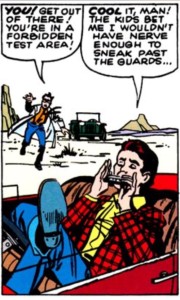

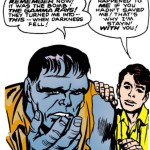


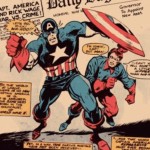

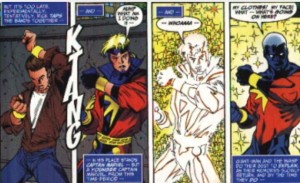




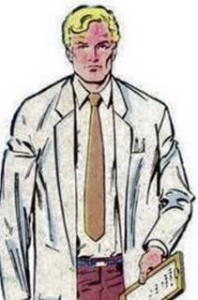
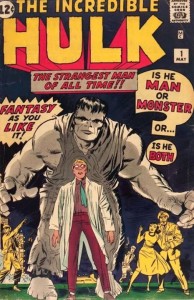
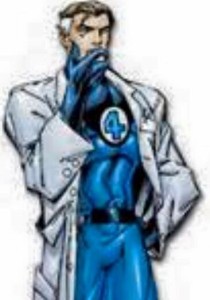
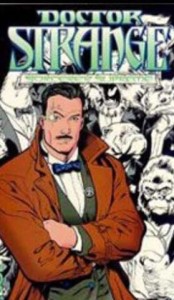

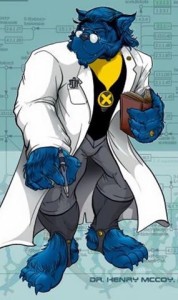

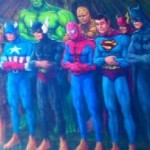
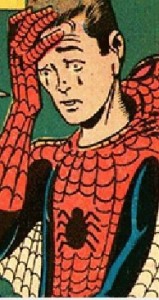

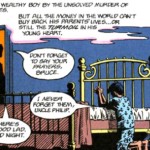
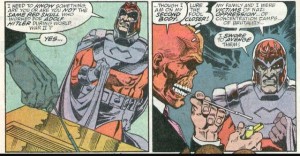
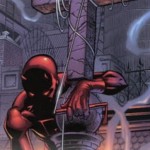


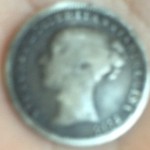
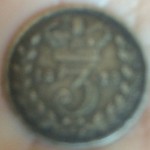




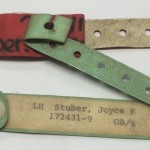






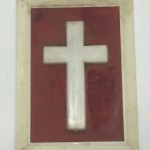

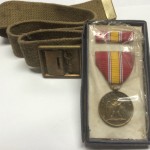
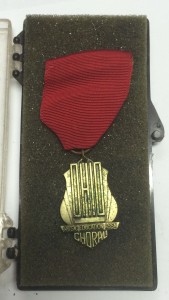
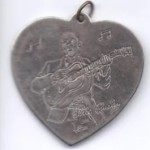

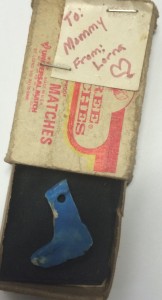
 “Sanctuary“
“Sanctuary“


